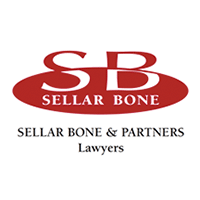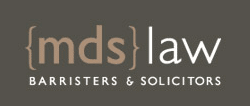Enterprise-wide AML/CTF Risk Assessment Solutions for Gatekeeper Professions
SOLUTIONS FOR
Gatekeeper Professions
The so-called Gatekeeper Professions like Accounting, Legal, Trust and Company Service Providers (T&CSPs), as well as, the commercial and residential Real Estate sectors have been known to be used by organised criminal networks to launder the proceeds of crime and to finance terrorism.
In many countries, Gatekeeper Professions are also “caught” by same AML/CTF laws that financial services and gaming sectors are subject to and these businesses and professions, must identify and assess their risks and vulnerabilities to money laundering and terrorism financing, then design, implement and maintain appropriate and proportionate control frameworks to mitigate and manage these risks.
In recent years with global tax evasion scandals exposed in both the Paradise Papers and Panama Papers leaks, these exposed the role that accountants, lawyers, trust and company service providers played in arranging for the illicit proceeds of crime to be laundered through the real estate sectors.
The Gatekeeper Professions are also vulnerable to sanctions, fraud, bribery and corruption, tax evasion, as well as, the illicit trafficking in arms, wildlife and people.
Choose your gatekeeper industry sub-sector to understand why your sector is covered by financial crime laws.
The risk-based approach (RBA) is a key concept in the prevention of money laundering and terrorism financing (ML/TF). It is a principle that financial institutions, gaming and wagering businesses, Gatekeeper Professions and other regulated entities use to identify and assess, mitigate and manage the ML/TF risks associated with their customers, products, services, channels, business, transactions and geographic footprint.
The risk-based approach involves identifying and assessing the level of risk associated with a particular customer or transaction and then applying appropriate measures to mitigate that risk. This means that financial institutions must take a proportionate and risk-based approach to their anti-money laundering (AML) and counter-terrorist financing (CTF) measures.
For example, a high-risk customer or transaction may require more extensive due diligence and monitoring than a low-risk customer or transaction. This approach helps to ensure that AML/CTF measures are focused on the areas where the risk of money laundering or terrorist financing is highest, rather than applying a one-size-fits-all approach.
The risk-based approach is now a widely accepted standard in AML/CTF regulations and is recommended by international organisations such as the Financial Action Task Force (FATF) and the Wolfsberg Group, an association of global banks which develops frameworks and guidance for the management of financial crime risks.
The risk-based approach presents challenges to many regulated businesses who lack the internal capacity or capability to design, build and implement enterprise-wide money laundering and terrorism financing risk assessments, which is at the heart of the problem that Arctic Intelligence is solving.
Gatekeeper Professions include accountants, lawyers, and other professionals, such as trust and company service providers, who help establish companies, bank accounts, nominee directorships and such like and in most jurisdictions they are already subject to money laundering laws because they have a critical role in preventing financial crimes. They are called Gatekeeper Professions as they are often the gatekeepers to the financial services industry.
Gatekeeper Professions are often targeted by criminals for money laundering and terrorist financing purposes, for example, by employing the services of an accountant or lawyer to create a fake business or shell company with the explicit intention to launder money. Gatekeeper Professionals may also use financial institutions to transfer funds to different accounts to avoid detection, making them an important component in the fight against financial crime.
To combat these activities, (most) governments (except Australia, as at March ‘23) have enacted laws and regulations to require Gatekeeper Professions to implement anti-money laundering and counter-terrorism financing (AML/CTF) measures. These measures include customer due diligence, monitoring of transactions, and reporting suspicious activities to financial intelligence units and/or law enforcement agencies.
Gatekeeper Professions are also required to maintain records of transactions, which can be used as evidence in investigations and prosecutions. Failure to comply with these regulations can result in significant fines and legal consequences for the Gatekeeper Profession and its individual members.
Overall, Gatekeeper Professions play a crucial role in preventing financial crimes and protecting the integrity of the financial system, which is why they are (mostly) subject to money laundering laws.
Some of the services provided by accountants and bookkeepers are vulnerable to money laundering activities due to their link to financial transactions, such as money transfers and trust account deposits, as well as the role they play in the establishment of legal entities and/or bank accounts to hold assets.
These are the services offered by accountants and bookkeepers that may be included as designated services under AML/CTF laws:
- Acting as a formation agent of legal persons or legal arrangements
- Acting as, or arranging for a person to act as, a nominee director or nominee shareholder or trustee in relation to legal persons or legal arrangements
- Providing a registered office or a business address, a correspondence address, or an administrative address for a company, or a partnership, or for any other legal person or arrangement
- Managing client funds (other than sums paid as fees for professional services), accounts, securities, or other assets
- Engaging in a transaction on behalf of any person in relation to the buying, transferring, or selling of a business or legal person (for example, a company) and any other legal arrangement
- Engaging in a transaction on behalf of a customer in relation to creating, operating, and managing a legal person (for example, a company) and any other legal arrangement
The services offered by accountants and bookkeepers may also have become more attractive to criminals over the past few years as the financial sector has implemented comprehensive AML/CTF measures.
As at 1 January 2024, Australian AML/CTF laws do not apply to Accountants or Bookkeepers but are expected to soon as Australia is one of the few remaining countries that have failed to implement the Financial Action Task Force (FATF) recommendations.
The money laundering and terrorism financing (ML/TF) risks associated with Accountants and Bookkeepers includes (but is not limited to):
- Accountants and bookkeepers may be hired by individuals or businesses involved in money laundering to provide professional services such as bookkeeping, accounting, tax planning, or financial advisory
- Accountants and bookkeepers could be asked to facilitate transactions that involve large amounts of money, often through complex financial arrangements. Such transactions could be designed to disguise the illegal source of the funds and to make them appear legitimate
- Accountants may also be at risk if they fail to conduct adequate due diligence on their clients or if they ignore suspicious transactions
- Accountants may also be at risk of being tempted by the prospect of personal gain from money laundering activities, for example, an accountant may be offered a bribe to ignore suspicious activity or to help launder money
- Criminals may seek out accountants and bookkeepers as gatekeepers to the financial system creating an impression of respectability and legitimacy
- Criminals may misuse accountants’ trust accounts for deposits or international wire transfers to avoid detection
- Criminals may seek the assistance of accountants to establish companies or trusts which they use to obscure who really owns or controls the funds and assets.
To mitigate money laundering risks Accountants and Bookkeepers are required to implement anti-money laundering and counter-terrorism financing (AML/CTF) programs.
These programs must include conducting enterprise-wide money laundering risk assessments (EWRA) to identify and assess the risks and vulnerabilities associated with customers, channels, products and services, business, environmental and geographic risks.
AML/CTF programs must also contain procedures for identifying and verifying the identity of customers, ensuring that the sources of funds of investors and counterparties is legitimate, monitoring customer transactions, and reporting suspicious activity to regulatory authorities.
Arctic Intelligence’s AML Accelerate Platform has been purposely tailored for Accountants and Bookkeepers, if you would like to learn more contact us or book a demo.
Some of the services provided by lawyers and conveyancers are vulnerable to money laundering activities due to their link to financial transactions, such as money transfers and trust account deposits, as well as the role they play in the establishment of legal entities and/or bank accounts to hold assets.
Legal practitioners and conveyancers provide services that operate as a gateway to property and financial markets, financial institutions and other regulated professionals.
These ‘gatekeepers’ provide financial and business services that can be abused to disguise beneficial ownership, conceal the origins and purposes of financial transactions, facilitate tax evasion and, ultimately, launder the proceeds of crime. Operating through or behind a professional adviser can provide a veneer of legitimacy to criminal activity.
These are the services offered by lawyers and conveyancers that may be included as designated services under AML/CTF laws:
- Acting as a formation agent of legal persons or legal arrangements
- Acting as, or arranging for a person to act as, a nominee director or nominee shareholder or trustee in relation to legal persons or legal arrangements
- Providing a registered office or a business address, a correspondence address, or an administrative address for a company, or a partnership, or for any other legal person or arrangement
- Managing client funds (other than sums paid as fees for professional services), accounts, securities, or other assets
- Engaging in a transaction on behalf of any person in relation to the buying, transferring, or selling of a business or legal person (for example, a company) and any other legal arrangement
- Engaging in a transaction on behalf of a customer in relation to creating, operating, and managing a legal person (for example, a company) and any other legal arrangement
- Engaging in or giving instructions on behalf of a customer to another person for any conveyancing to affect the grant, sale, or purchase or any other disposal or acquisition of real estate or an interest in land
- The transfer of a beneficial interest in land or other real property.
The services offered by lawyers and conveyancers may also have become more attractive to criminals over the past few years as the financial sector has implemented comprehensive AML/CTF measures.
As at 1 January 2024, Australian AML/CTF laws do not apply to lawyers or conveyancers but are expected to soon as Australia is one of the few remaining countries that have failed to implement the Financial Action Task Force (FATF) recommendations.
The money laundering and terrorism financing (ML/TF) risks associated with Lawyers and Conveyancers includes (but is not limited to):
- Lawyers and conveyancers may be hired by individuals or businesses involved in money laundering to provide professional services such as legal advice on establishing entities and how to possibly circumvent AML/CTF laws
- Lawyers and conveyancers could be asked to facilitate transactions that involve large amounts of money, often through complex financial arrangements. Such transactions could be designed to disguise the illegal source of the funds and to make them appear legitimate
- Lawyers and conveyancers may also be at risk if they fail to conduct adequate due diligence on their clients or if they ignore suspicious transactions
- Lawyers and conveyancers may also be at risk of being tempted by the prospect of personal gain from money laundering activities, for example, a lawyer may be offered a bribe to ignore suspicious activity or to help launder money
- Lawyers and conveyancers are bound by strict client confidentiality rules, which can make it difficult to identify suspicious activity or report potential money laundering
- Lawyers and conveyancers often have long-standing relationships with clients, and clients may trust their lawyers with sensitive financial information. This trust can be abused by criminals who may use lawyers to conceal their illicit activities
- Lawyers and conveyancers may not have adequate training or knowledge to identify money laundering risks, particularly in areas such as international finance and complex corporate structures
- Lawyers and conveyancers may be involved in cross-border transactions, which can increase the risk of money laundering due to differences in laws and regulations across jurisdictions.
- Criminals may seek out lawyers and conveyancers as gatekeepers to the financial system creating an impression of respectability and legitimacy
- Criminals may misuse lawyers’ trust accounts for deposits or international wire transfers to avoid detection
- Criminals may seek the assistance of lawyers to establish companies or trusts which they use to obscure who really owns or controls the funds and assets, therefore avoiding the detection and confiscation of assets, and hindering law enforcement investigations.
To mitigate money laundering risks Lawyers and Conveyancers are required to implement anti-money laundering and counter-terrorism financing (AML/CTF) programs.
These programs must include conducting enterprise-wide money laundering risk assessments (EWRA) to identify and assess the risks and vulnerabilities associated with customers, channels, products and services, business, environmental and geographic risks.
AML/CTF programs must also contain procedures for identifying and verifying the identity of customers, ensuring that the sources of funds of investors and counterparties is legitimate, monitoring customer transactions, and reporting suspicious activity to regulatory authorities.
Arctic Intelligence’s AML Accelerate Platform has been purposely tailored for Lawyers and Conveyancers, if you would like to learn more contact us or book a demo.
Trust and company service providers (T&CSPs) are often vulnerable to money laundering risk because of their role in providing services to clients who may wish to conceal the true source of their wealth or the beneficiaries of their assets. T&CSPs may provide services such as company formation, management, and administration, as well as trustee services for trusts.
T&CSPs can unwittingly facilitate money laundering if they do not have adequate safeguards in place to identify and mitigate risks.
Trust and Company Service Providers (T&CSPs) can take different forms, but generally assist in the creation, operation and management of corporate and trust structures.
The services offered by T&CSPs operate as a gateway to property and financial markets, financial institutions and other regulated professionals. These can be misused by criminals to disguise beneficial ownership, conceal the origins and purposes of financial transactions, facilitate tax evasion and, ultimately, launder the proceeds of crime, as well as, where complex structures are established, create distance between criminal entities and their illicit wealth.
These are the services offered by trust and company service providers that may be included as designated services under AML/CTF laws:
- Acting as a formation agent of legal persons or legal arrangements
- Acting as, or arranging for a person to act as, a nominee director or nominee shareholder or trustee in relation to legal persons or legal arrangements
- Providing a registered office or a business address, a correspondence address, or an administrative address for a company, or a partnership, or for any other legal person or arrangement
- Managing client funds (other than sums paid as fees for professional services), accounts, securities, or other assets
- Engaging in a transaction on behalf of any person in relation to the buying, transferring, or selling of a business or legal person (for example, a company) and any other legal arrangement
- Engaging in a transaction on behalf of a customer in relation to creating, operating, and managing a legal person (for example, a company) and any other legal arrangement
- Engaging in or giving instructions on behalf of a customer to another person for any conveyancing to affect the grant, sale, or purchase or any other disposal or acquisition of real estate or an interest in land
- The transfer of a beneficial interest in land or other real property.
The services offered by trust and company service providers may also have become more attractive to criminals over the past few years as the financial sector has implemented comprehensive AML/CTF measures.
As at 1 January 2024, Australian AML/CTF laws do not apply to trust and company service providers but are expected to soon as Australia is one of the few remaining countries that have failed to implement the Financial Action Task Force (FATF) recommendations.
The money laundering and terrorism financing (ML/TF) risks associated with trust and company service providers includes (but is not limited to):
- Trust and company service providers may be used by individuals or businesses involved in money laundering to establish corporate entities with the objective of creating complex legal entity structures purposefully designed to obscure the ultimate beneficial ownership
- Trust and company service providers could be asked to facilitate transactions that involve large amounts of money, often through complex financial arrangements. Such transactions could be designed to disguise the illegal source of the funds and to make them appear respectable and legitimate
- Trust and company service providers may also be at risk if they fail to conduct adequate due diligence on their clients or if they ignore suspicious transaction
- Trust and company service providers could be engaged in the movement of funds therefore avoiding the detection and confiscation of assets, and hindering law enforcement investigations.
To mitigate money laundering risks, trust and company service providers are required to implement anti-money laundering and counter-terrorism financing (AML/CTF) programs.
These programs must include conducting enterprise-wide money laundering risk assessments (EWRA) to identify and assess the risks and vulnerabilities associated with customers, channels, products and services, business, environmental and geographic risks.
AML/CTF programs must also contain procedures for identifying and verifying the identity of customers, ensuring that the sources of funds of investors and counterparties is legitimate, monitoring customer transactions, and reporting suspicious activity to regulatory authorities.
Arctic Intelligence’s AML Accelerate Platform has been purposely tailored for Trust and Company Service Providers, if you would like to learn more contact us or book a demo.
Real estate professionals, such as real estate agents, brokers, and developers, are vulnerable to being used as a conduit for money laundering due to the nature of their work.
Real estate can be an attractive channel for criminals wishing to launder illicit funds.
Criminals can purchase a property using illicit funds, live in the property purchased with illicit funds, renovate the property (using illicit funds) to improve its value and sell the property later for a capital gain.
The ultimate beneficial ownership of real estate can also be easily concealed, making it an attractive asset class for criminals.
These are the services offered by Real Estate Professionals that may be included as designated services under AML/CTF laws:
- Managing client funds (other than sums paid as fees for professional services), accounts, securities, or other assets
- Engaging in or giving instructions on behalf of a customer to another person for any conveyancing to affect the grant, sale, or purchase or any other disposal or acquisition of real estate or an interest in land
- The transfer of a beneficial interest in land or other real property.
As at 1 January 2024, Australian AML/CTF laws do not apply to Real Estate Professionals but are expected to soon as Australia is one of the few remaining countries that have failed to implement the Financial Action Task Force (FATF) recommendations.
The money laundering and terrorism financing (ML/TF) risks associated with Real Estate Professionals includes (but is not limited to):
- Real estate professionals are often involved in cash transactions, which can make it easier for criminals to launder money
- Criminals may use complex ownership structures, such as shell companies or trusts, to hide the true ownership of a property and launder money through it
- Real estate transactions involving large amounts of money can be attractive to money launderers
- International real estate transactions may involve multiple jurisdictions, making it easier for criminals to move money around and conceal its origin.
- Real estate professionals may not conduct adequate due diligence on their clients, which can make it easier for criminals to use real estate transactions to launder money
- Real estate professionals may conduct transactions without meeting clients in person, which can make it harder to detect suspicious activity
- Criminals may engage third parties to buy and sell properties, adding a layer of anonymity
- Criminals may use loans and mortgages, and use illicit cash to reduce the balance and providing an offset account for future withdrawals
- Criminals may use real estate to manipulate property values, for example, buying or selling at prices above or below fair market value
- Criminals can apply structuring techniques using cash deposits to buy real estate
- Criminals can buy and then lease out properties, but providing the “tenant” with illicit funds to pay the rent
- Criminals can buy property using illicit funds with the intention of conducting further criminal activity at the property (i.e., safe houses, stash houses or cultivating drugs)
- Criminals can also use illicit funds to renovate properties, gaining when property valuations rise after the completion of a renovation.
To mitigate money laundering risks, Real Estate Professionals are required to implement anti-money laundering and counter-terrorism financing (AML/CTF) programs.
These programs must include conducting enterprise-wide money laundering risk assessments (EWRA) to identify and assess the risks and vulnerabilities associated with customers, channels, products and services, business, environmental and geographic risks.
AML/CTF programs must also contain procedures for identifying and verifying the identity of customers, ensuring that the sources of funds of investors and counterparties is legitimate, monitoring customer transactions, and reporting suspicious activity to regulatory authorities.
Arctic Intelligence’s AML Accelerate Platform has been purposely tailored for Real Estate (Commercial and Residential), if you would like to learn more contact us or book a demo.
Arctic Intelligence (www.arctic-intelligence.com) is a multi-award winning, RegTech firm that specialises in audit, risk and compliance software related to financial crime compliance and risk management.
Arctic Intelligence has helped large, medium and small clients in the Gatekeeper Professions and other sectors to identify and assess their risks and vulnerabilities to financial crime and then design, implement and maintain appropriate and proportionate controls to mitigate and manage these risks.
Arctic has developed three leading cloud-based software solutions that leverage the latest regulatory technology (RegTech) to re-engineer the way in which Gatekeeper Professions manage their financial crime risks.
If you would like to learn more please contact us or request a demo with our team click here.
For more information and to get started, book a demo now
FINANCIAL CRIME SOLUTIONS FOR
Gatekeeper Professions
Arctic Intelligence is recognised as a thought leader and pioneer in enterprise-wide financial crime risk and compliance gap assessment platforms.
Why choose Arctic Intelligence?
Built by industry experts
Our experts have decades of financial crime risk management experience.
Industry knowledge and expertise
Our team have deep industry knowledge and practical experience.
Tailored to your industry sector
Risk assessments have been tailored to your industry sector.
Proven solutions you can trust
Widely adopted by hundreds of firms in over 30 sectors, 75 countries.
Keep everything up-to-date
Monthly and Quarterly updates ensure you are not missing anything.
Explainable and defendable
Easily demonstrate compliance to Boards and Regulators at any time.
Highly flexible solutions
Regardless of the maturity of you risk assessment, we have you covered.
Cost effective, saving time and money
Save time and money, compared to manual activities or in-house builds.
Peace of mind for your executives
Methodical process provides peace of mind to Boards and Senior Executives.
What solutions do we offer that are designed for Gatekeeper Professions?
AML Accelerate
AML Accelerate is a cloud-based guided risk assessment solution for assessing money laundering and terrorism financing risks and developing AML/CTF Programs/Policies.
AML Accelerate is designed for smaller and medium-sized businesses and has been tailored to over 30 industry sectors, including the gatekeeper professions.
Risk Assessment Platform
The Risk Assessment Platform is a cloud-based highly flexible and configurable enterprise-wide risk and control assessment solution designed for larger enterprises.
Apply standard risk and control libraries for various financial crime risks or configure it to suit any enterprise risk management framework and methodology using in-built workflows, audit trail and real-time enterprise analytics and insights.





